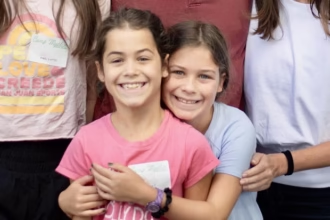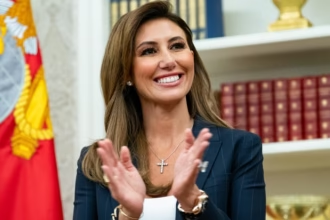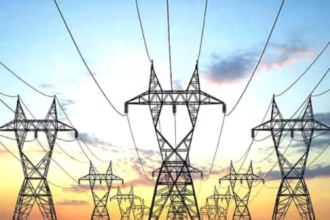Florida officials announced that the state will work to phase out all childhood vaccine mandates, becoming the first in the U.S. to do so. Health experts say such a move raises the risk of deadly disease outbreaks.
Students have long been required to receive vaccinations for once-common childhood illnesses like polio and measles. A large majority of Americans believe the government should make vaccines more available and should encourage vaccination against measles, mumps and rubella, a CBS News poll found.
In the past few years, the United States has seen rising numbers of families getting vaccine exemptions for non-medical reasons, and vaccination rates have declined. Some states have made it easier to seek such exemptions. Florida’s plan to roll back requirements would be the most sweeping change to vaccine regulations by far.
Why do schools have vaccine mandates?
Communities need to maintain high rates of vaccination to prevent outbreaks of disease and achieve what’s called herd immunity, public health experts say. Herd immunity helps protect vulnerable members of the population who can’t get vaccinated, like those who are too young or immunocompromised. For a disease like measles, the CDC says a herd immunity threshold of 95% is necessary to avoid outbreaks.
School vaccine mandates are an “important tool” to maintain herd immunity, said Liz Williams, a senior policy manager with KFF’s Program on Medicaid and the Uninsured.
“It’s so important to get those vaccination levels up so it protects everyone,” Dr. Philip Huang, director of the Dallas County Health and Human Services Department, told CBS News. “When you make it a requirement, that’s where you get the rates up to where we need to protect everyone.”
Routine childhood vaccinations also keep “children, families and their communities healthy and thriving,” Dr. Susan J. Kressly, president of the American Academy of Pediatrics, said in August.
School vaccination rules vary by state. Most states require students receive vaccinations for polio, chicken pox, diphtheria-tetanus-acellular pertussis (DTaP) and measles, mumps and rubella (MMR), according to the Centers for Disease Control and Prevention. Some states also require vaccination for meningitis and hepatitis B.
“When everyone in a school is vaccinated, it is harder for diseases to spread and easier for everyone to continue learning and having fun,” Dr. Rana Alissa, chair of the Florida Chapter of the American Academy of Pediatrics, said in an email to The Associated Press on Wednesday. “When children are sick and miss school, caregivers also miss work, which not only impacts those families but also the local economy.”
Will other states ban vaccine mandates?
Florida is the first state to announce plans to entirely roll back vaccine mandates, but it’s not clear when the changes will take effect. Some of the vaccine requirements can be struck down by the health department, while others will require legislative approval. Florida Gov. Ron DeSantis said a state “Make America Healthy Again” commission will help create a “medical freedom package” to be introduced in the state Legislature next session.
Idaho loosened many of its rules on immunizations in a new law that took effect over the summer. The “Idaho Medical Freedom Act” prohibits schools, companies and government entities from denying admission or services to a person who has not received a “medical intervention,” including vaccines. The law weakens school vaccine mandates, said Williams, but does not go as far as Florida’s plan.
Idaho is also one of three states — along with Montana and Iowa — that have debated legislation that would limit the use of mRNA vaccines, according to Axios. Louisiana officials have not commented on banning vaccine mandates, but said in February 2025 that they will stop promoting mass vaccination campaigns.
Parents, across political lines, are overwhelmingly supportive of schools requiring vaccines for measles and polio, according to a KFF-Washington Post poll.
States allow for increased vaccine exemptions
At least 10 states have made changes to state-level vaccination requirement policies in the last year, said Williams. Most of those changes will result in more students claiming exemptions from vaccine policies, she said. Areas with higher rates of vaccine exemptions tend to have lower vaccination rates and be at an increased risk for outbreaks, Williams said.
There are two kinds of vaccine exemptions: medical and non-medical exemptions. Non-medical exemptions include those for personal reasons or religious beliefs. All states allow for medical exemptions. California, New York, Maine, Rhode Island and West Virginia do not allow for non-medical exemptions, according to the National Conference of State Legislatures.
The country has already seen a rise in vaccine exemptions in recent years, according to CDC data, and hit a record high last year. During the 2021-2022 school year, 2.2% of students had an exemption for at least one vaccine. Of those, 1.9% were for non-medical reasons. By the 2024-2025 school year, 3.6% students had an exemption for at least one vaccine with 2.4% of those exemptions for non-medical reasons.
Idaho had the highest rate of exemptions during the 2024-2025 school year, at 15.4%, according to CDC data. Nearly all, or 15.1%, of those exemptions are for non-medical reasons. The state with the next highest rate of exemptions is Alaska, at 9.4%.
The rise in exemptions has led to falling vaccination rates overall. CDC data shows that about 92.1% of kindergarteners received the DTaP vaccine, while 92.5% received the MMR and polio vaccines. The numbers are all down slightly from the previous school year, the CDC said.
“We’ve seen children’s vaccination rates for routine childhood vaccination decline since the pandemic, and we’ve also seen exemptions to school vaccination increase,” Williams said. “It’s likely a lot of these state level policy changes are going to continue to contribute to these trends (of) more exemptions and lower vaccination rates.”
What happens if vaccine rates fall?
If vaccine rates fall below the numbers needed to maintain herd immunity, experts say the U.S. could see more outbreaks of preventable disease.
Earlier this year, a measles outbreak erupted in a community in West Texas with low vaccination rates, leading to the U.S. recording the most cases of the potentially deadly illness in 30 years. Infections were confirmed in at least 39 states, with more than 1,400 cases nationwide. CDC data showed 92% of the people sickened had not received a measles vaccine or were of unknown vaccination status.
Lower vaccination rates have also enabled a number of cases of polio, which had officially been considered eliminated in the U.S. years ago.
“People forget the successes that we’ve seen with these vaccines. Before we had the polio vaccine, there were almost 60,000 cases in the U.S. each year, and almost 14,000 cases of paralytic polio,” Huang, of the Dallas County health department, told CBS News. “Parents waited fearfully every summer to see if it would strike.”
Worldwide, vaccines have saved 154 million lives, mostly infants, in the past 50 years, according to the World Health Organization. The CDC says that childhood vaccinations prevent about 4 million deaths worldwide each year.









